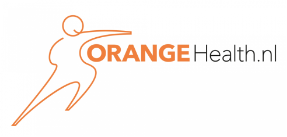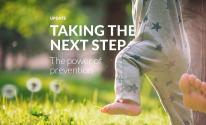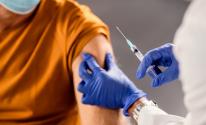
Chapter 3
The Power of Prevention
On a mission to shape the future: OrangeHealth
INTERVIEW
with Willem Fokkema
On a mission to shape the future: that is the mission of public-private partnership ORANGEHealth. What might this future look like? Imagine visiting the dentist with an oral gum disease. He then performs a saliva test, which confirms his belief that there are indicators that point to type 2 diabetes. The dentist then advises you to visit a doctor for further examination.
‘After all, the mouth is the mirror of health’, says Willem Fokkema, Executive Director at ACTA Dental Research and Programme leader of ORANGEHealth. ‘Moreover, there is potential to use the prevention model of oral healthcare for general healthcare’. Curious to know how? Read it in this interview!
Prevention as a way of life
The prevention model for oral healthcare is ingrained in people’s minds and way of life. The majority of the Dutch population visits the dentist at least once a year. ‘That presents a huge potential for oral healthcare to integrate with general healthcare’, says Fokkema. Since oral healthcare is strong in prevention in the Netherlands, it also presents itself as a very good starting point to look at the rest of one’s health.’ But how are we going to realise this?
Unique consortium
ORANGEHealth (originating from ‘ORal ANd GEneral’ health) presents a unique consortium with more than 80 oral health specialists, patients, knowledge institutions and companies. Their aim is to transform the traditional system with a strategy that spreads over ten years. ‘That is our horizon because transforming a system is a challenge that we are not going to achieve today or tomorrow, it takes one step at a time.’
The strategy contains three key focus areas that should help realise the goals. One of the key focus areas is the research and development of tools for innovation, as shown with the saliva test example in the introduction. The other two key focus areas are data infrastructure and monitoring, and field labs and implementation. ‘Eventually, we hope to achieve the goal that oral health is viewed as an integral part of health, instead of a separate aspect’, explains Fokkema.
More years of healthy living by applying prevention
Fokkema sees opportunities when we talk about the health of the elderly. ‘Within oral health, in particular, there is still a lot to be gained. As the elderly get older, the mouth gets less and less attention. And if you think about the relationship between the mouth and diseases, you realise it is very important to keep the mouth clean and healthy’, says Fokkema. ‘
‘However, you can imagine that people who are older receive medication at some point, and for example, they get a dry mouth, and they have difficulty swallowing. And then a cascade of problems arises when these people eat less; they receive liquid food, they become less active, which results in an unhealthy lifestyle. Therefore, it is precisely in that age group that there is still a lot of health gain to be made.’
Health awareness
‘Moreover, we should regard our health as an activity that needs to be continually worked on, instead of viewing it as an end goal’, states Fokkema. Finally, we would like to see that oral health education is added to the school curriculum and that it also becomes part of public information campaigns so that we can really transform the system.’ We have to do it together.
Are you interested in joining ORANGEHealth with your expertise? Then don’t hesitate and contact Willem Fokkema for the opportunities!


Public-Private Projects: Mission I
By funding multidisciplinary public-private projects that contribute to the 5 missions, Top Sector LSH aims to facilitate innovation. Here we give two examples of recent projects that make a significant contribution to Mission I: by 2040, the burden of disease resulting from an unhealthy lifestyle and living environment will have decreased by 30%.
The NWT-03 project
Age-related chronic diseases including dementia, type-2 diabetes (T2D) and cardiovascular disease (CVD) are becoming more prevalent and are a growing burden for society. This project aims to unravel mechanisms underlying beneficial effects of a novel food supplement (NWT)-03 on cognitive performance.
Company Newtricious is playing a vital role in this project. Their vision is that science driven ingredients can play an active and important role in the prevention and mild treatment of chronic diseases, thereby improving the quality of life.
NWT-03 has proven benefits on insulin sensitivity and peripheral vascular function, which are risk markers for T2D and CVD. The results of this project may contribute to the prevention of cognitive impairment and, ultimately, dementia. The focus will be on adults with an emerging pre-mild cognitive impairment condition who will benefit most from evidence-based intervention and prevention strategies.
This project will advance the understanding of why NWT-03 is beneficial for cognitive impairment and possibly other age-related conditions. Except for its scientific relevance, results will contribute to other important areas, such as reducing economic and societal costs related to cognitive decline.
The DIABLEND project
An unhealthy lifestyle drives the development of type 2 diabetes (T2D). In the DIABLEND project the focus is on personalised lifestyle optimisation for people with T2D in The Hague, starting in two deprived neighbourhoods there: Schilderswijk and Bouwlust-Vrederust. Unique in this project is the high amount of industrial partners working together with citizens, knowledge institutions and government.
The project will start from existing tools/platforms. A large-scale study will be performed on a personalised and tailored strategy for achieving T2D remission using lifestyle programmes based on the physical, mental, behavioural and socioeconomic characteristics of the individual with T2D.
Eventually, the study aims to integrate and innovate towards an ecosystem that can be implemented for thousands of people with T2D in a larger follow-up programme. The lessons learnt and output from DIABLEND will be disseminated through the Lifestyle4Health platform.

Match Call
The projects above are receiving PPP Allowance from the Top Sector. Through the PPP Allowance, the Top Sector provides a financial instrument to help consortia containing research organisations, knowledge institutes, companies, and health foundations to realise their innovative ideas. Are you inspired by the projects, and would you like to read more about the PPP Allowance or apply for it? Then take a look here, or contact the Health~Holland office (via tki@health-holland.com) to get more information or assistance in the application process.
On 8 and 15 September 2021, consortiums can also pose specific questions to the Health~Holland Match Call team in a personal question and answer session. You can request an appointment by sending an email to tki@health-holland.com.





